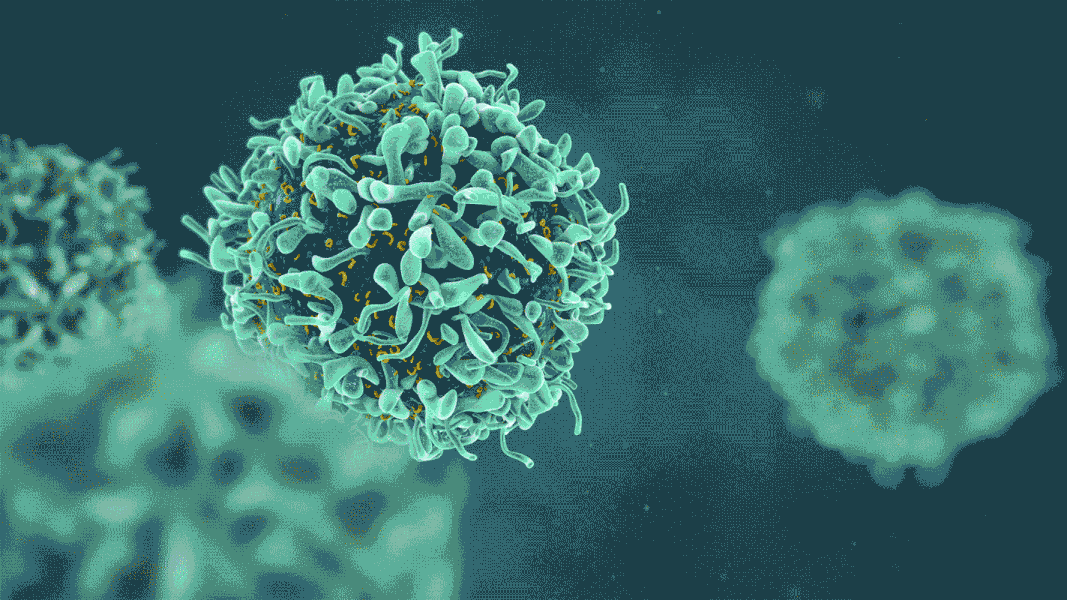On Wednesday, former Vice President Joe Biden spoke on The View with Meghan McCain, daughter of Sen. John McCain and a co-host on the show. In a tearful moment, Biden comforted McCain about her father's glioblastoma, the same disease from which Biden's own son, Beau, passed away from in 2015.
In particular, Biden cited (CAR) T-cell therapy research being done:
“There’s a lot of things happening... there’s breakthroughs that are occurring now... It could happen tomorrow,” Biden told McCain.
Biden is right in placing much of his hope for a cure for cancer in the promising new therapy. Immunotherapy is one of the buzziest words in medicine. Touted as the future for aggressively fighting—maybe even eliminating—diseases, the idea is to jumpstart the patient’s own immune system into better identifying and attacking diseases that normally escape attack and stealthily conquer the body. Alongside immunotherapy is the emergent ability of scientists to genetically modify cells to act in exact ways.
What if, now, you could combine the reenergizing powers of immunotherapy with the sharp-shooter specificity of gene therapy? Theoretically, you get treatments that have the astounding potential to make those on the verge of death live.
That is, if the treatment doesn’t kill them first.
Straddling this balance is chimeric antigen receptor (CAR) T-cell therapy: a revolutionary cancer treatment where doctors take a patient’s own T-cells (which play a significant role in the body’s cell-mediated immune response), genetically reengineer them so they facilitate a more directed and powerful attack against tumor cells, make millions of copies, and infuse them back into the patient so they kill cancerous cells. CAR T-cells have the unique superpower of being able to recognize specific cancer cells with the CAR molecule on their surfaces, said David Porter, an oncologist and cancer researcher based at the University of Pennsylvania. “It essentially reprograms the T-cell so it can now recognize the cancer cell,” he noted.
It seems to work phenomenally well. The FDA recently approved two new CAR T-cell therapies: Kymriah, for pediatric and young adults up to age 25 suffering from acute lymphoblastic leukemia (ALL); and Yescarta, for adult patients with certain forms of non-Hodgkin lymphoma—cancers that leave patients with few optimistic options. In Phase II clinical trials assessing the effects of the treatments, Kymriah—which Porter helped create—led to complete cancer remission (i.e., no evidence of the disease) in 83 percent of patients; for Yescarta, complete remission was found in 51 percent of patients.
Porter analogizes CARs to velcro: a patient’s own T-cells don’t readily possess the other piece of velcro which will stick to the cancer cell’s velcro. So scientists will change up the T-cell’s genes so they have that velcro. They can now recognize and stick to—and attack—the cancer cells.
“This is really like a living drug,” said Porter. “It grows in the body.” One of the most phenomenal aspects is how effective the therapy is in staving off relapse. Once the malignancy is eliminated, there’s a very good chance it stays gone. James Kochenderfer, a scientist at the National Cancer Institute’s Center for Cancer Research who’s worked on Yescarta, and Porter alike note that patients treated as far as six to seven years ago are still in remission. For those patients who are cured, they no longer need any kind of treatment.
“After a few weeks in the hospital allowing the T-cells to attack the cancer and contending with the side effects, they exit the treatment ecstatic,” said Kochenderfer. “It’s incredible how well they do, and how much we’ve learned.”
But when you take the brakes off the immune system like that, there are potential crashes that threaten to derail the whole thing. A cure for cancer like CAR T-cell therapy is not without its grave safety concerns. Any infection causes the body’s T-cells to activate and release what are called cytokines—signals lead to a rise in body temperature and create other symptoms of illness that are ostensibly meant to help fight off infection. “It’s the same thing when the immune system is fighting cancer,” said Kochenderfer. “Except it’s more intense.”
Trials of Yescarta and Kymriah reported some patients experiencing what’s called a cytokine release syndrome (CRS). “It’s like having a really, really severe flu-like syndrome,” said Porter. Fevers can reach a scorching 105 degrees Fahrenheit, create muscle and joint aches, and induce nausea and diarrhea. As CRS progresses, it can lead to dangerously low blood pressure, and life-threatening respiratory problems. Patients with advanced stages of leukemia who are undergoing CAR T-cell therapy are particularly vulnerable to CRS reactions.
But there is a way to mitigate CRS: an immunosuppressive medication called Tocilizumab (normally prescribed for rheumatoid arthritis) can block a protein associated with CRS, and shut off the syndrome in practically an hour or two. “It works most of the time,” said Porter, “though I will note it doesn’t work in everybody.” Researchers are still working on tweaking CAR T-cell therapy—perhaps through the dosage, or the product itself—so it won’t lead to a CRS reaction.
Kochenderfer emphasizes that one of the most exciting things about this field is the ability to genetically modify the cells in any which way. “In my lab, we’ve made hundreds of different CARs, most of which don’t get into clinical trials. But we can easily change the DNA to change what the CAR can do.” Kochenderfer and his team have already developed a CAR T-cell which produces less cytokine and are currently testing whether it diminishes the chances of CRS reactions in patients. When it comes to genetic engineering, there are endless ways to find a solution—it’s just a matter of proving one works.
There are two adjacent issues to safety that CAR T-cell therapy advocates will also need to address as the treatment expands. In a recent Health Affairs article responding to the FDA’s approval of Kymriah, Mildred Solomon, the president of the Hastings Center, and her colleagues argue that problems related to limited patient access and high cost regarding Kymriah (and Yescarta by extension) need resolution.
“In both cases, you have what appears to be a highly effective, potential breakthrough treatment,” said Solomon. “They both engender a great deal of excitement about their efficacy”—obtaining FDA approval through expedited pathways. That rapid approval means the treatments need closer monitoring than usual, as well as policy solutions that don’t leave desperate cancer patients out in the cold.
None of this detracts from what a mind-blowing success CAR T-cell therapy has been so far. “These kinds of breakthroughs don’t happen that often in medicine and oncology,” said Porter. “Many of these patients that we’ve treated have run out of other treatment options. Many of them have now been cured of incurable cancers. That borders on miraculous.”
This story was updated December 13, 2017 to reflect a televised conversation between former Vice President Joe Biden and Meghan McCain.






